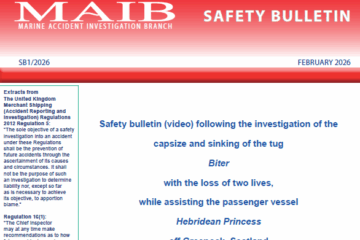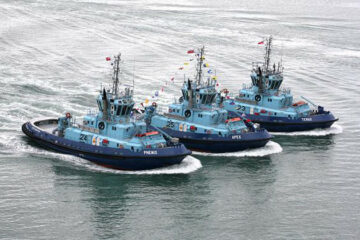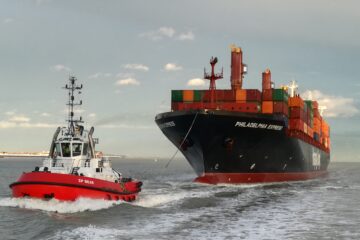Apprenticeship development gathers pace as the Chamber greatly welcomes the Institute for Apprenticeships (IFA) recent announcement that it has approved the Marine Technical Superintendent Apprenticeship for delivery.
The Level 7 Apprenticeship (Postgraduate level) which includes a BEng degree was developed by an employer led trailblazer group comprised of various UK Chamber of Shipping members and coordinated through the Maritime SuperSkills Project Group based at Liverpool John Moores University (LJMU) of which Diane Fitch was Project Manager.
Diane said, “we are delighted that this high-level apprenticeship has been approved for delivery. Universities will now be able to offer this training and universities wishing to do so can now commence the process of designing the delivery model”.
The employer led trailblazer group, led by Stena Line also included the UK Chamber members Seatruck Ferries, Svitzer Towage, Royal Fleet Auxiliary and Northern Marine.
Robert Merrylees, Policy Manager at the UK Chamber and Secretary to the British Tugowners Association welcomed the Chamber member involvement, “it is great to see companies from across the UK shipping sector come together to develop this apprenticeship at the top level of education and see apprenticeships being approved all the way from Level 2 to Level 7. Such a range of apprenticeships really goes to show that the maritime industry can provide fantastic opportunities at every level.“
The Marine Technical Superintendent (MTS) Apprenticeship is a shore-based, technical role responsible for safely and effectively managing one or more vessels. They oversee vessel performance and hold responsibility for the technical and operational condition of vessels from an engineering perspective, including refits and fleet time maintenance programmes, implementing and monitoring compliance and ensuring vessels are fully certified to international requirements and Class rules.
The duties and responsibilities of the MTS are significantly broader than those of a sea-going engineer and require strong skills in leadership and management, financial and commercial proficiency, project management expertise and the commitment to keep abreast of emerging technologies, including cybersecurity and ship automation. As all Chief Engineers in the fleet would report to the MTS, this is primarily a senior engineering management role, with typical progression routes from both sea-going and shore-based occupations.
Individual employers will set the selection criteria for their Apprenticeships, however entrants to the role should typically have a foundation level qualification (level 5) and experience in a maritime engineering discipline, preferably as a second engineer officer or electro-technical officer with equivalent experience. Despite this, suitable candidates may also have a background in the management of ship-repair or experience as a classification society surveyor.
Kathryn Neilson, Director of the MNTB said “ with the advancement of technology, particularly autonomy having an impact on the training needs of our seafarers and with more and more maritime jobs being created on shore to meet that need, it is critical we develop training that is industry driven and prepares our seafarers for the future. The transition from ship to shore can be challenging for a number of reasons and this professional training programme will offer those with an engineering back ground the opportunity to develop their existing skills giving them the ability to build, lead and manage multifunctional teams on shore”
To find out more about the Marine Technical Superintendent Apprenticeship, click link .


